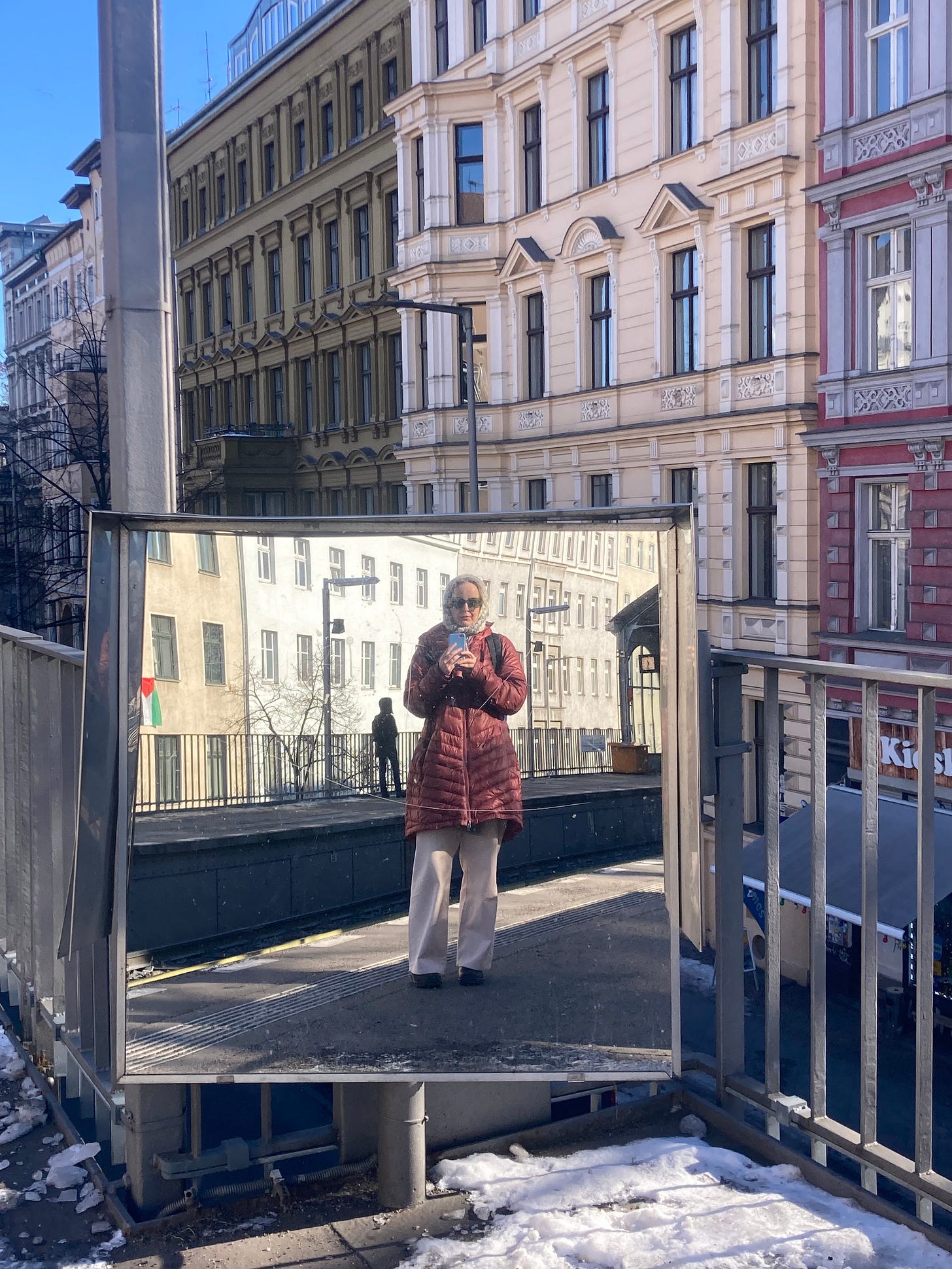I just saw the new Richard Linklater movie “Blue Moon” at the Berlinale. I’ve lived here seven years and never gone to any film at the Berlinale, even though tickets are easy. You get stuck in routines. I’ve been trying to break out of that this winter and it kinda feels like I live in a brand new place.
Linklater is a writer’s director. Nothing ever happens in his movies—dialogue is the star. His films have been on my mind recently.
“Before Sunrise” (1993) I saw in college. Two young people meet on a train, they fall in love. They walk around Vienna, they talk all night. At the end, it’s unclear whether they’ll ever see each other again.
I watched “Before Sunset” (2003) in November on a flight to Brazil. It’s 10 years later, the same two people now meet again, at his book reading in Paris, both now entangled in their own lives and careers, one with a child. They walk and talk through Paris all day. At the end, it’s unclear whether he makes his flight back to real life.
On Valentine’s Day, I watched the final part of the trilogy, “Before Midnight” (2013). Another 10 years, they’re together now, they live in Paris with school-age kids, they’re vacationing in Greece. They have mid-career frustrations, ex-partners, and a child from one of those relationships who still lives in the U.S. They fight bitterly. At the end, everything’s unclear.
“Blue Moon” is also about love, but the love a writer has for the world. It was a welcome shift.
The movie is about Lorenz Hart, a famous New York songwriter and playwright in the 1920s and 1930s. At one point he talks about his “omnisexuality” as a fundamental expression of being a writer. Something along the lines of:
“How can you reflect the full chorus of humanity in your writing if you don’t have room for the full chorus of humanity in your heart?”
And all he does for 100 minutes is charm everyone at a bar. Classic Linklater.
Hart’s longtime writing partner, Richard Rodgers, has just premiered his first project without him. The new writing partner is Oscar Hammerstein, and their project is the musical “Oklahoma!,” which went on to be one of the most influential musicals of all time. You’ve heard of Rodgers and Hammerstein—not Rodgers and Hart.
The film is about the unique pain of not writing, but of still witnessing everything in your world as a writer would, of dreaming up your most genius work in quotidian moments, in the bathroom and with every conversation partner you encounter, of falling in love with everyone you meet and wanting others to see them and fall in love with them in the exact same way you do, and then a new moment comes, a seed of doubt or more sinister shame is planted, a lover’s rejection, the sudden wild success of a peer, a diminishing bank account, the anxieties of war. The work is gone. The energy is sunk. It wasn’t meant to be. You mourn that work. You wonder whether you have ever in your life written a single word. You did something good once, people said they felt what you were saying, they saw you, you saw them. You wonder who that writer was and if their love for you was a misunderstanding, if that person will ever return, or maybe a different writer will come by and take control, just wait a little longer.
It’s about the measures people take to diminish this pain—the booze, obsessions, distractions, lovers—and most of all, the grand delusion that these measures somehow improve the work, and how it all gets in the way, the tragedy of getting in our own way.
To write, you must have, at least for a few hours, complete congruence of mind: your ambitions must seem plausible. Your internal monologue must seem worth listening to. Your other work must be delayable. You don’t need paints, or software, or fabric, and you have no excuse. It is an elusive state. You can get nostalgic and sentimental about it, but neither help.
There is a scene in the middle of the film when Hart—a writer of dozens of classic songs, like “Blue Moon” and “Bewitched, Bothered, and Bewildered” (one of my favorites)—stops talking for a few minutes. He just walks slowly around the bar, listening to a man recite off glowing reviews of Rodgers’ new musical, fresh off the presses, to a crowd of adoring fans. Hart is smiling, he asks for a shot, spiraling, smiling, smiling.
I wept silent fat tears in the UberEats Music Hall. I’m not sure, but I think I may have been the only one. At least it felt like I was the only one.
When I left the theater I felt a surge of adrenaline, maybe all the sunshine we’ve had in the last week or so, special and rare in February. On the train home I started writing.

Love,
Amanda




